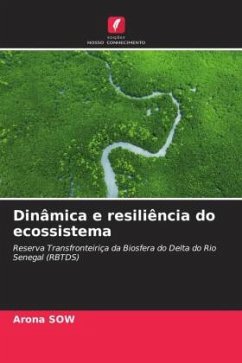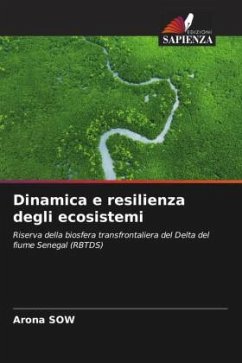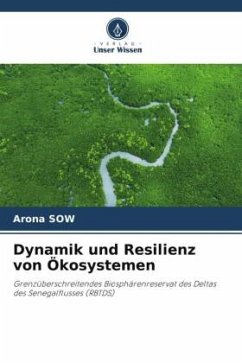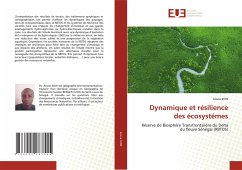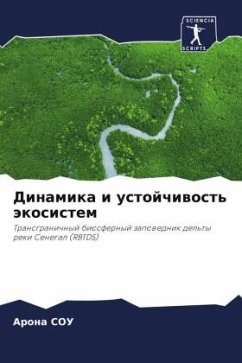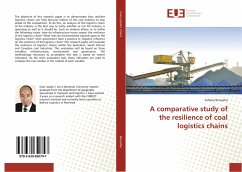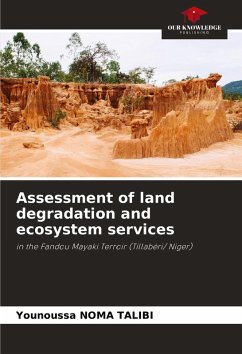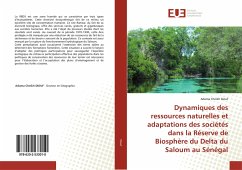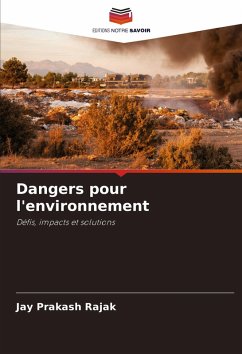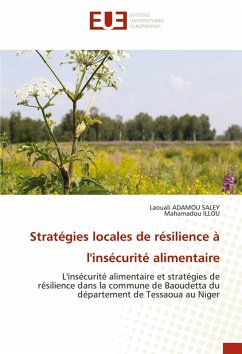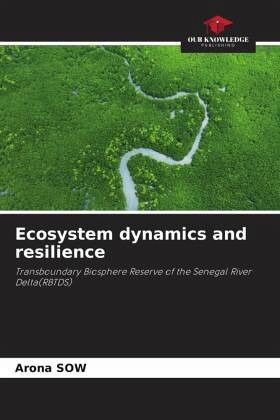
Ecosystem dynamics and resilience
Transboundary Biosphere Reserve of the Senegal River Delta(RBTDS)
Versandkostenfrei!
Versandfertig in 6-10 Tagen
55,99 €
inkl. MwSt.

PAYBACK Punkte
28 °P sammeln!
The interpretation of the field results, graphic and cartographic treatments allowed to refine the dynamics of landscapes, ecosystem services in the RBTDS and the resilience systems of the societies in front of the impacts of the climate change and the big hydro-agricultural or hydro-electrical developments installed in the zone. The results of the study also show a dynamic evolution of the mangrove and typha since 2000, with a reduction of saline land and an increase in aquatic vegetation. However, human societies in the RBTDS are adopting resilient strategies to cope with climate change and ...
The interpretation of the field results, graphic and cartographic treatments allowed to refine the dynamics of landscapes, ecosystem services in the RBTDS and the resilience systems of the societies in front of the impacts of the climate change and the big hydro-agricultural or hydro-electrical developments installed in the zone. The results of the study also show a dynamic evolution of the mangrove and typha since 2000, with a reduction of saline land and an increase in aquatic vegetation. However, human societies in the RBTDS are adopting resilient strategies to cope with climate change and artifact impacts. Another result of the study shows that participatory management represents a sustainable alternative for safeguarding the ecosystems of the RBTDS. It allows for the involvement of all stakeholders (local populations, state authorities, ....) for the proper management of natural resources.



